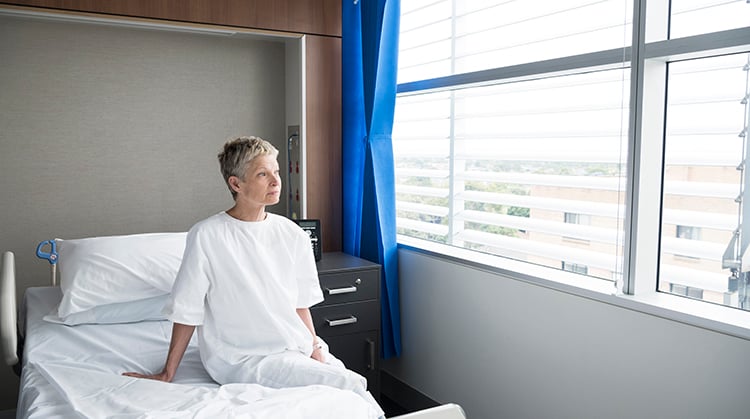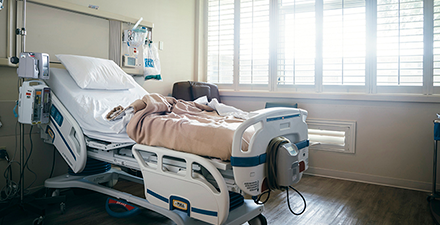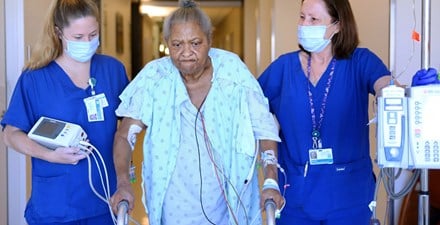
It can be hard to deal with acute health issues. They come on suddenly and require care in a hospital. Some acute illnesses and injuries can overwhelm patients and their family caregivers. The good news is that when you experience an acute health issue, a team of medical experts, including an acute care physical therapist, will provide your care.
Physical therapists are important members of the comprehensive health care team. They may work with you in one or more of the following settings:
- The emergency department, hospital, or intensive care unit.
- An inpatient rehabilitation facility.
- A long-term acute care facility.
- Skilled nursing facility.
Acutely ill patients can develop new problems from time spent in the hospital, including weakness and mobility issues. Early treatment by a physical therapist can help you avoid or lessen these problems by getting you up and out of bed and moving safely. Physical therapists help you maintain and/or regain mobility and strength during and after your hospital stay.
Here are some of the benefits of in-hospital visits by an acute care physical therapist:
1. Preventing decline with early mobility.
Physical therapists are movement experts who work with medical teams to ensure safe movement and mobility. Research has shown that hospital patients are not nearly as active as at home. They may spend 93% to 98% of the time in bed and walk less than 1,000 steps a day. Early mobility during a hospital stay can help prevent pneumonia, blood clots, and pressure injuries or wounds (sometimes called bed sores).
Physical therapists will teach you appropriate exercises based on your needs and abilities. They will show you how to move while in bed, standing, and walking, even if you are in the intensive care unit. Patients in the ICU who receive skilled physical therapist treatment report being more independent with activities, such as rolling in bed, standing, and walking, than those who did not receive a visit from a physical therapist.
2. Improved recovery time and decreased length of hospital stays.
Whether recovering from a fracture, surgery, stroke, or other health problem, your physical therapist will tailor a plan for your specific needs. They will work with you to safely improve your strength and physical function to help restore your independence. Your physical therapist also will educate you and your caregiver on ways to manage your physical activity after you leave the hospital. Research shows that following your physical therapy treatment plan may decrease your time in the hospital and reduce your chances of being readmitted.
3. Safe discharge planning.
Physical therapists play a major role in discharge planning. They provide:
- Screening to determine your need for continued therapy services after hospital discharge.
- Recommendations for the right therapy setting to meet your needs after you leave the hospital.
- Caregiver education on how to help patients move safely and exercise at home.
- Patient education for safe use of equipment such as walkers, crutches, and canes to enable independence.
Studies show that patients who did not follow their physical therapist's recommendations were nearly three times more likely to be readmitted to the hospital.
If you or a loved one are admitted to the hospital, ask your medical team to make sure that a physical therapist is involved in your care. Also, ask if seeing one after discharge from the hospital would benefit you.
Physical therapists are movement experts. They improve quality of life through hands-on care, patient education, and prescribed movement. You can contact a physical therapist directly for an evaluation. To find a physical therapist in your area, visit Find a PT.


